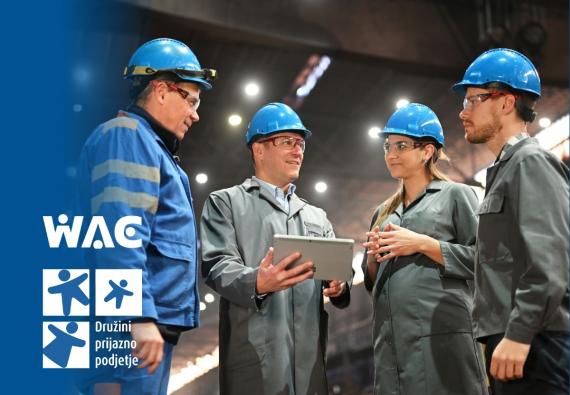
Prosta delovna mesta
Prosta delovna mesta si lahko ogledate tukaj.
SIJ Acroni je eden vodilnih proizvajalcev nerjavnih in specialnih jekel v Evropi. Smo del največje slovenske vertikalno integrirane metalurške skupine – Skupine SIJ. Zavezani smo globalnim in evropskim podnebnim ciljem in delujemo po načelih krožnega gospodarstva. S svojimi jekli in izdelki smo partner za zeleni prehod Evrope. Smo sodobna reciklažna jeklarna. Naše jeklo je reciklirano.
Z več kot 1.300 zaposlenimi smo eden največjih delodajalcev na Gorenjskem, Skupina SIJ pa z več kot 3.800 zaposlenimi eden največjih delodajalcev v Sloveniji in steber slovenskega jeklarskega sektorja. Uvrščamo se med vodilne slovenske izvoznike. Približno 85 odstotkov svojih prihodkov ustvarimo na tujih trgih.
SIJ Acroni sestavlja pet obratov:
Ključni proizvodni programi vključujejo visokokakovostne jeklene izdelke, kot so:
Jeklo je pomemben temelj trajnostno naravnanega sveta. Je najbolj recikliran material na svetu. V SIJ Acroniju ga vedno znova predelujemo v nove vrste jekla. Brez izgube vrednosti.